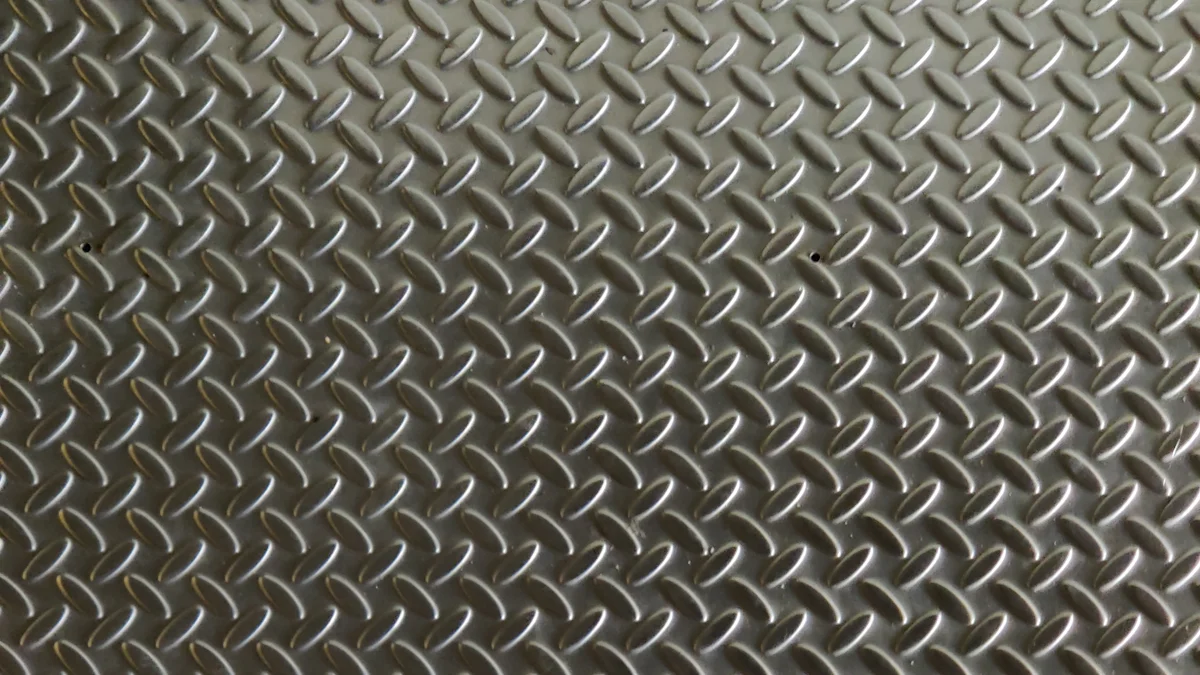Understanding Zinc Alloy Metal and Stainless Steel
What is Zinc Alloy Metal?
Zinc alloy metal, a composite comprising zinc and additional elements including aluminum, copper, and magnesium, offers a plethora of properties that render it suitable for diverse applications. Recognized for its lightweight characteristics, zinc alloy is particularly advantageous for the creation of complex designs. Moreover, its superior corrosion resistance qualities make it an excellent option for outdoor use. The material’s malleability further allows manufacturers to achieve varied shapes with ease, enhancing design flexibility in production processes.
Composition and Properties
The composition of zinc alloy predominantly consists of zinc, complemented by minor proportions of other metals. This specific amalgamation endows it with distinctive properties such as high tensile strength and notable thermal conductivity. Additionally, zinc alloy is characterized by its excellent machinability, which facilitates the effortless shaping into precise components.
Common Uses and Benefits
Zinc alloy is extensively employed across numerous industries owing to its beneficial attributes. This metal is frequently used in the manufacture of household fittings, fashion accessories, and automotive components. Zinc alloy’s affordability and versatility render it an appealing choice for manufacturers who desire economical yet high-quality solutions.
What is Stainless Steel?
Stainless steel is a durable and corrosion-resistant alloy composed primarily of iron, with the addition of chromium, nickel, and other elements. This unique composition gives stainless steel its renowned strength and resistance to rusting or staining. It is widely favored for its hygienic properties and aesthetic appeal in diverse applications.
Composition and Properties
Stainless steel’s composition predominantly comprises iron alongside at least 10.5% chromium content by mass. This infusion of chromium forms a protective layer on the surface of the steel, preventing corrosion even when exposed to harsh environments or chemicals.
Common Uses and Benefits
Stainless steel’s exceptional properties make it indispensable across various sectors such as construction, food processing, healthcare, and transportation. Its non-porous surface makes it easy to clean and maintain hygiene standards—making it an ideal choice for kitchen appliances, medical instruments, architectural structures, and more.
Comparing Zinc Alloy Metal and Stainless Steel
When considering materials for a project, it’s essential to compare the physical properties, cost, and availability of zinc alloy metal and stainless steel. Each material offers distinct advantages and characteristics that can significantly impact the success of a project.
Physical Properties Comparison
Strength and Durability
Zinc alloy metal is renowned for its lightweight nature, making it an excellent choice for applications where weight is a critical factor. While it may not possess the same level of strength as stainless steel, its durability is suitable for various everyday uses. On the other hand, stainless steel boasts exceptional strength and durability, making it ideal for heavy-duty applications such as construction, industrial equipment, and structural components.
Corrosion Resistance
One of the defining features of zinc alloy metal is its impressive corrosion resistance. This makes it particularly well-suited for outdoor applications or environments with high moisture levels. In contrast, stainless steel is also highly resistant to corrosion due to its chromium content. This property makes stainless steel an optimal choice for items exposed to harsh weather conditions or corrosive substances.
Cost and Availability
Material Costs
Zinc alloy metal is known for its affordability compared to stainless steel. Its lower production costs make it an attractive option for projects with budget constraints or those requiring large quantities of material. Stainless steel, while more expensive than zinc alloy metal, offers long-term value due to its durability and minimal maintenance requirements.
Availability in the Market
Both zinc alloy metal and stainless steel are widely available in the market, catering to diverse industry needs. However, the specific grades or variations of stainless steel may have varying levels of availability compared to standard zinc alloys. It’s important to consider the specific requirements of a project when assessing the availability of these materials.
Applications and Use Cases
Zinc alloy metal and stainless steel are utilized in a wide array of everyday applications due to their distinct properties and characteristics. Understanding their specific use cases can aid in making informed decisions when selecting the appropriate material for a project.
Zinc Alloy Metal in Everyday Life
Zinc alloy metal is extensively employed in various consumer products, contributing to its widespread presence in everyday life.
Jewelry and Fashion Accessories
Zinc alloy is commonly used as a base material for crafting jewelry and fashion accessories. Its lightweight nature and ability to be molded into intricate designs make it an ideal choice for creating stylish yet affordable pieces. Additionally, the corrosion resistance of zinc alloy ensures that these items maintain their aesthetic appeal over time, providing long-lasting value to consumers.
Household Fittings and Hardware
In residential settings, zinc alloy finds application in the production of household fittings and hardware components. Items such as door handles, knobs, hinges, and bathroom fixtures often incorporate zinc alloy due to its durability, cost-effectiveness, and ease of manufacturing. The versatility of zinc alloy allows for the creation of diverse designs that cater to different interior styles while offering reliable functionality.
Established in 2002 and based in China, Qingdao Sunrise New Material Co., Ltd. has been serving customers globally with its superior metal products. The company’s zinc alloy is a testament to its commitment to quality, innovation, and customer satisfaction.
The zinc alloy produced by Sunrise New Material integrates zinc with additional elements including aluminum, copper, and magnesium. This synthesis enhances the alloy’s overall strength, durability, and resistance to corrosion. Due to its exceptional versatility, this zinc alloy is perfectly suited for diverse applications such as die casting, automotive components, hardware fittings, and ornamental products.
A principal advantage of Sunrise New Material‘s zinc alloy lies in its superior quality. The company implements rigorous quality control protocols throughout each phase of the production process, ranging from the careful selection of raw materials to comprehensive final product testing. This meticulous approach guarantees that their zinc alloy not only meets but surpasses industry standards, providing customers with a highly reliable product distinguished by its exceptional strength and durability.
Stainless Steel in Everyday Life
Stainless steel’s exceptional properties make it indispensable across various sectors such as construction, food processing, healthcare, transportation, and more.
Kitchen Appliances and Cutlery
Stainless steel is a popular choice for kitchen appliances and cutlery due to its hygienic properties, durability, and resistance to corrosion. Cookware, refrigerators, sinks, faucets, knives, and utensils are often crafted from stainless steel to ensure food safety standards are met while providing long-term reliability in a demanding environment.
Construction and Industrial Applications
In the construction sector, stainless steel is extensively employed for key structural elements including beams, columns, reinforcement bars (rebar), cladding systems, fasteners, and architectural features. The material’s superior strength-to-weight ratio renders it exceptionally suitable for constructing infrastructure that must endure environmental challenges while simultaneously preserving aesthetic qualities.
Making the Right Choice for Your Project
When faced with the decision of selecting the appropriate material for a project, several factors come into play. Understanding the specific requirements and considering expert recommendations can guide this crucial decision-making process.
Factors to Consider
Project Requirements and Specifications
Before choosing between zinc alloy metal and stainless steel, it’s essential to evaluate the unique demands of the project. Consider aspects such as the intended application, environmental conditions, and functional expectations. For instance, projects that require lightweight components with intricate designs may lean towards zinc alloy metal, while those necessitating high strength and durability may favor stainless steel.
Budget and Longevity Expectations
Budget constraints and longevity expectations are pivotal considerations when determining the suitable material. Zinc alloy metal presents an economical option, particularly for projects requiring large quantities or intricate designs without compromising on quality.
Expert Recommendations
When to Choose Zinc Alloy Metal
Experts recommend opting for zinc alloy metal in scenarios where lightweight construction is paramount. Its versatility in molding intricate designs makes it an ideal choice for applications such as fashion accessories, household fittings, and consumer products. Additionally, projects with budget constraints can benefit from the cost-effective nature of zinc alloy metal without compromising on performance.
When to Choose Stainless Steel
Stainless steel is strongly advised for projects that require exceptional strength, corrosion resistance, and durability. Its hygienic qualities are critical in applications where cleanliness is paramount, including kitchen appliances, medical instruments, and structural components. Although the initial investment may be higher, stainless steel provides unmatched durability and reliability in demanding environments.
In conclusion, making an informed choice between zinc alloy metal and stainless steel involves a comprehensive assessment of project requirements alongside expert insights to ensure optimal outcomes.








